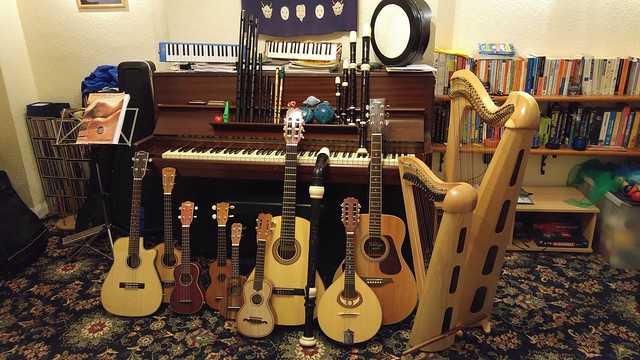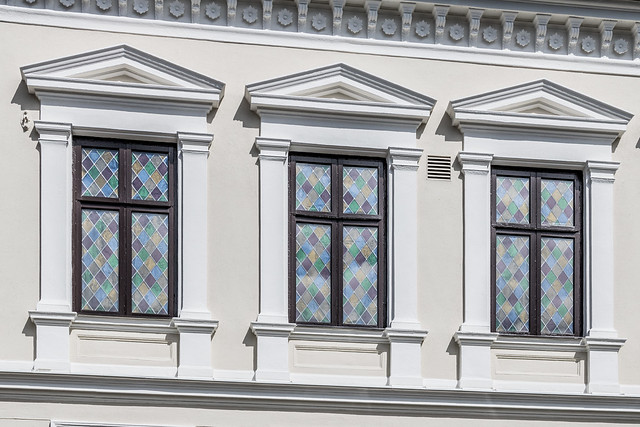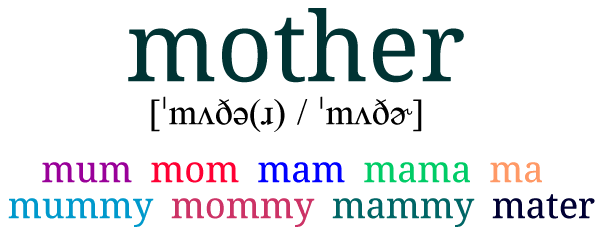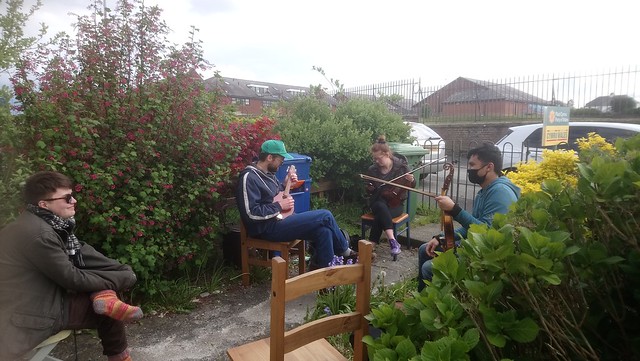Podcast: Play in new window | Download
Today we are looking at the word paraphernalia [ˌpæɹəfəˈneɪli.ə/ˌpɛɹəfɚˈneɪli.ə].

Some of my musical and juggling paraphernalia
According to Dictionary.com, it refers to “equipment, apparatus, or furnishing used in or necessary for a particular activity”, “personal belongings”, or “the personal articles, apart from dower, reserved by law to a married woman.”
It comes from the Ancient Greek word παράφερνα (parápherna), meaning “goods which a wife brings over and above her dowry”, from παρά (pará – beside) and φερνή (phernḗ – dowry). Apparently when dowries were paid, they became the husband’s property, and anything else the wife brought to the marriage (her paraphernalia) remained in her possession [source].
Synonyms include apparatus, accouterments, effects, equipment, furnishings, gear, possessions, stuff, tackle, things and trappings.
Here’s a video I made of this information:
Video made with Doodly – an easy-to-use animated video creator [affiliate link].
I also write about etymology on the Omniglot Blog.







